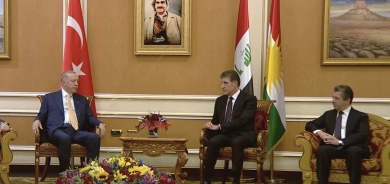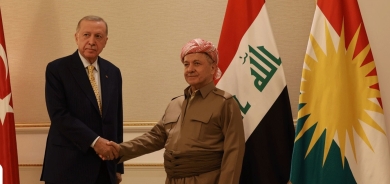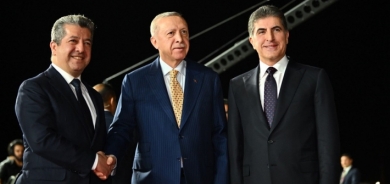THE IMRALI LEAKS and POSSIBLE CONSEQUENCES

Today, Öcalan seems to be far ahead of both Turkish and Kurdish nationalists who are obsessed with land and national sovereignty. He says nationalism and the nation-state are ideological traps set up by capitalism and the Western ways of thinking to squeeze the laboring masses dry and pitting them against to perpetuate its existence. Instead, he proposed to concentrate on individual rights, constitutional citizenship as an equalizer and participatory democracy that will make all citizens stakeholders in the system they are a part of. The only match he has found is Prime Minister R.T. Erdoğan who has openly condemned nationalism that set peoples of the same state apart from each other because they are ethnically and culturally different.
THE AFTERMATH
The leaked conversations evoked three different kinds of emotions with differing comments:
1-Alas, the peace initiative is sabotaged once again; saboteurs are in action. 2- Those that have leaked the minutes have the sinister plan of exposing the characters and intentions of the negotiators. The Kurds would know what a megalomaniac and self-centered man they have been following; he can hardly be trusted. The message to the Turks was that Öcalan is not sincere, he looks like he is ready for peace but is after personal salvation and tries to keep his organization intact outside Turkey’s borders because the PKK will be the primary organization leading the struggle for independence of Kurds in Syria and Iran. Turkey’s Kurds will join them sooner or later. 3- Whichever plot is hatched, the peace initiative has to go on and succeed. This is the general wish of the people and the government seems to be quite adamant.
Fortunately, the third feeling and interpretation proved to be shared by more people than others in a matter of few days. However, the event pointed out that there was a public relations gap in the management of the peace talks. To ward off criticism for negotiating with a ‘terrorist outfit’, the government pretends that it is the ‘state’ (in fact, the Secret Service) that is doing it. So there is a shroud of secrecy as to what is being discussed and the outcome of the negotiations Secondly, the need for expanding the number of stakeholders are neither met nor planned for. After all the future of the whole nation is at stake and they want to know what is going on and want to contribute to the making of peace in one way or another.
THE VISCITUTE OF CHANGE
Now that the content of the minutes is revealed the following questions are in order: 1- A. Öcalan believes that he is the most influential political actor in Turkey and the near abroad. He seems to act as if he has the monopoly of ‘truth’ on most things. Would the majority of the Kurds follow such a man in confidence? Given his authoritarian character, will the Kurds allow him to decide on their fate as if they do not have differences of opinion, faith and culture? If not, will the Kurds demand wider and more diversified participation in the peace process?
2- It is inevitable that peace will come with major structural changes. But few people know what will change and to what extent. Will change be palliative and expedient or will it be a holistic, structural one?
3- What will be the criteria of “change for peace”? Will these criteria be local or national or universal in character? It will be a pity if it is the first because “national criteria” is the root cause of the ongoing crisis.
There is a handy depository at hand of universal values of equal citizenship, rule of law and participatory democracy: the European Union. Dismissing the reluctance of major EU countries concerning Turkey’s membership and Turkey’s lost appetite because of this, EU criteria may be a functional instrument for building a more non-contentious regime.
Once, public support for EU membership had reached to 70%. Kurds generally scored 20% higher than Turks for obvious reasons. They still are more eager. Hence why adopting EU criteria shouldn’t be a framework for the change? It may be our best chance for a lasting peace at home and political stability which we need so much. Now that nationalism has been out, let us usher in universalism.

 Doğu Ergil
Doğu Ergil






